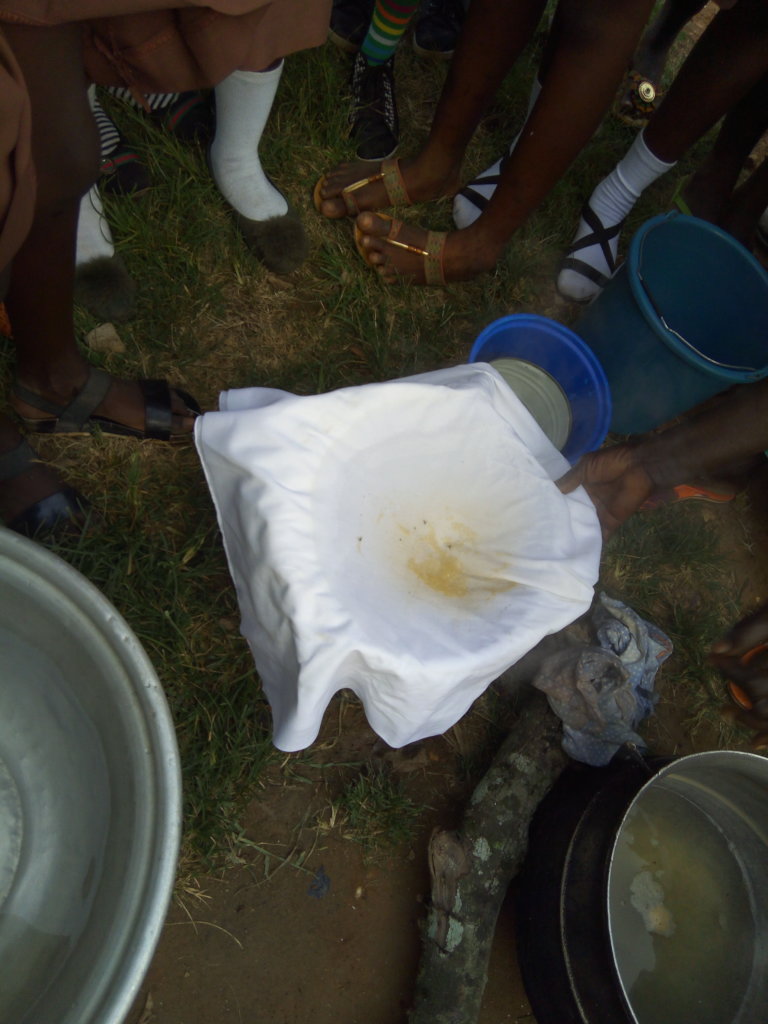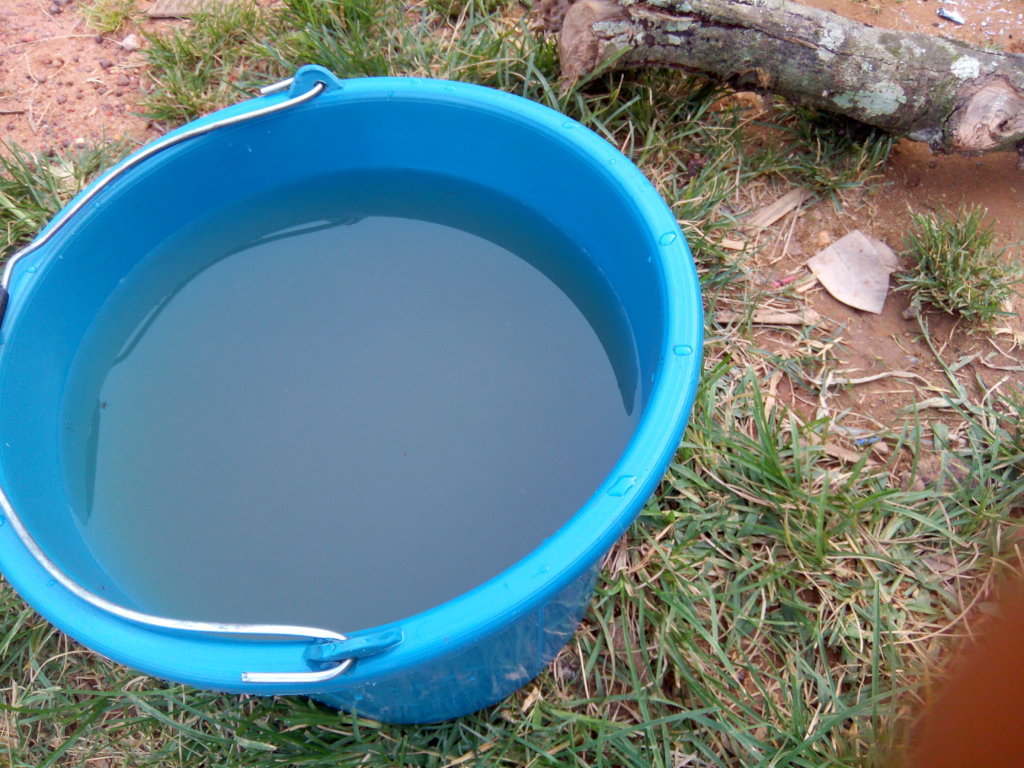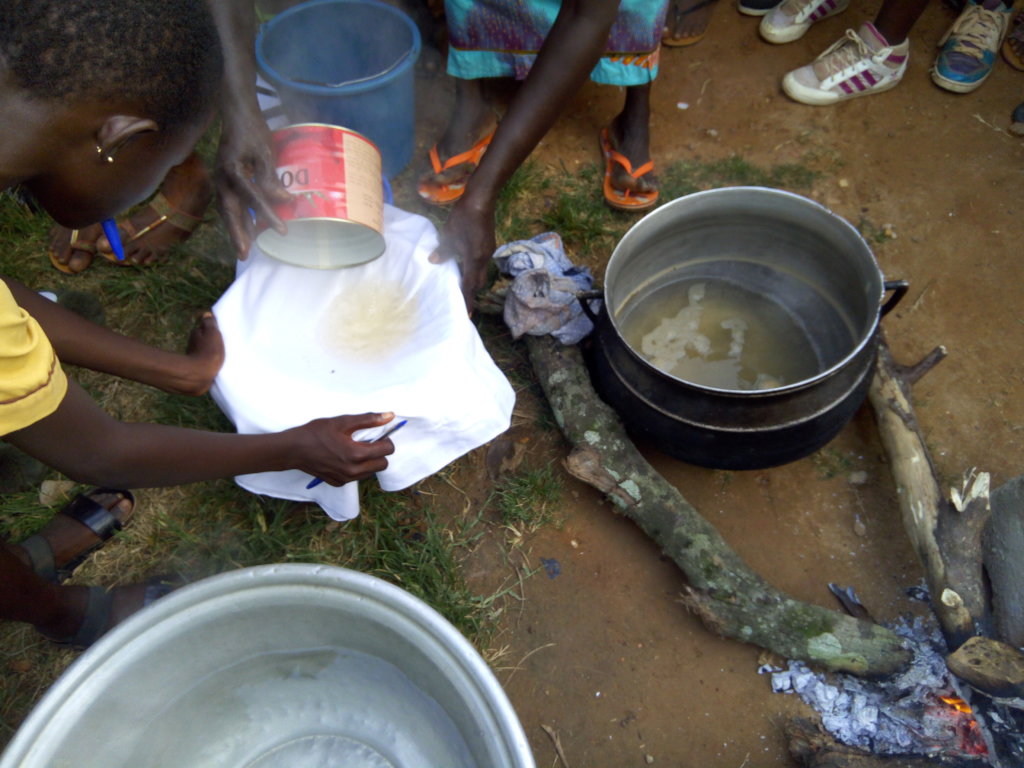By Patience Obour | Program Officer, Teen Girls Club
“My science teacher told me it is dangerous to drink water from River Offin. He said that if we consume the water we will fall sick, and possibly die, if left untreated. I don’t understand, my parents and all my siblings drink from Offin, and we have never felt sick.” That was Dora, a fifth grade student Bedabour Primary School. Dora is not alone; many of her friends and peers from rural communities in Ghana shared the same mindset. It is important to educate students about clean water to break this cycle of superstition and misinformation, and improve overall community health.
At a glance, one can see that the murky water from River Offin was not as clean and clear as the water from the boreholes at Bedabour. However, Dora and her friends used to believe that the color of the water was simply determined by the source, with clear water coming from the ground and murky water flowing from the valley. Many adults in Dora’s community also shared this conviction. Some even believed the color of the river water contained properties that could cure common diseases such as malaria, typhoid, and rheumatism. For others, the river water was simply more convenient to access, so they would use it as drinking water, rather than hauling water from the borehole since they didn’t understand the health benefits of drinking from the borehole.Because of the color difference, they would always haul clear water from boreholes to wash their white clothes to keep them bright, rather than the murky water from the River Offin. They didn’t realize that the color was also an indicator of the quality of the water, and that the murky water was less safe to drink.
In March, the Teen Girls Club embarked on a campaign to educate over 100 teenage girls from Beposo, Timeabu, and Bedabour about the importance of drinking purified water, how to protect water bodies, and protect our environment. They also planted mango, orange, and acacia seedlings to improving the vegetation and nutritional status of their communities.
Though there are many ways of purifying water, we began the training by teaching the girls about boiling and filtering since both are affordable and sustainable for the families in these communities. Most of the items needed were readily available in the rural communities, with the exception of the filtering materials, which we purchased in the city.
At the start, the girls were invited to hypothesize which source of water would be better to drink. They observed that the water from the borehole was much clearer than the water from the River Offin, but were unsure which was safe and which was dangerous to consume.
To start the experiment, the girls collected water samples from River Offin and one of the boreholes, boiled both for 30 minutes, and allowed them to cool. The girls eagerly watched as the samples were poured onto their respective filters. Murmurs began to fill the room when the Offin River water filter gathered residue, and the borehole filter did not. At first, some of the girls doubted the source of the residue, for they had been drinking from River Offin for many years unharmed. In order to prove that it was not a false positive and alleviate all doubts, we repeated the process several times, and the girls became convinced that River Offin contained substances that may be damaging to their health.
One of the girls asked the trainer, “Madam Patience, are we going to see this each time we boil and filter water from River Offin?” The response was yes.
Dora was inspired! For the first time in many years, she understood why her teacher always cautioned her against drinking untreated water from River Offin. From that moment, Dora promised not only to stop drinking untreated water, but also to inform her friends and family of the risky practice. As time passes, future generations will be better off due to the knowledge spread by Dora and the Teen Girls Club.
Millions of people from developing countries suffer from preventable water borne diseases such as bilharzia, river blindness, and guinea worm infection due to inadequate information and poor water management practices.
It may be difficult to change the minds of the adults in rural Ghana, but gradually we are making advancements in the lives of the teenagers we serve. These communities now possess a better understanding of the need to purify water before consumption to prevent common water borne diseases and to produce a healthier nation.
Project reports on GlobalGiving are posted directly to globalgiving.org by Project Leaders as they are completed, generally every 3-4 months. To protect the integrity of these documents, GlobalGiving does not alter them; therefore you may find some language or formatting issues.
If you donate to this project or have donated to this project, you can recieve an email when this project posts a report. You can also subscribe for reports without donating.
Support this important cause by creating a personalized fundraising page.
Start a Fundraiser


